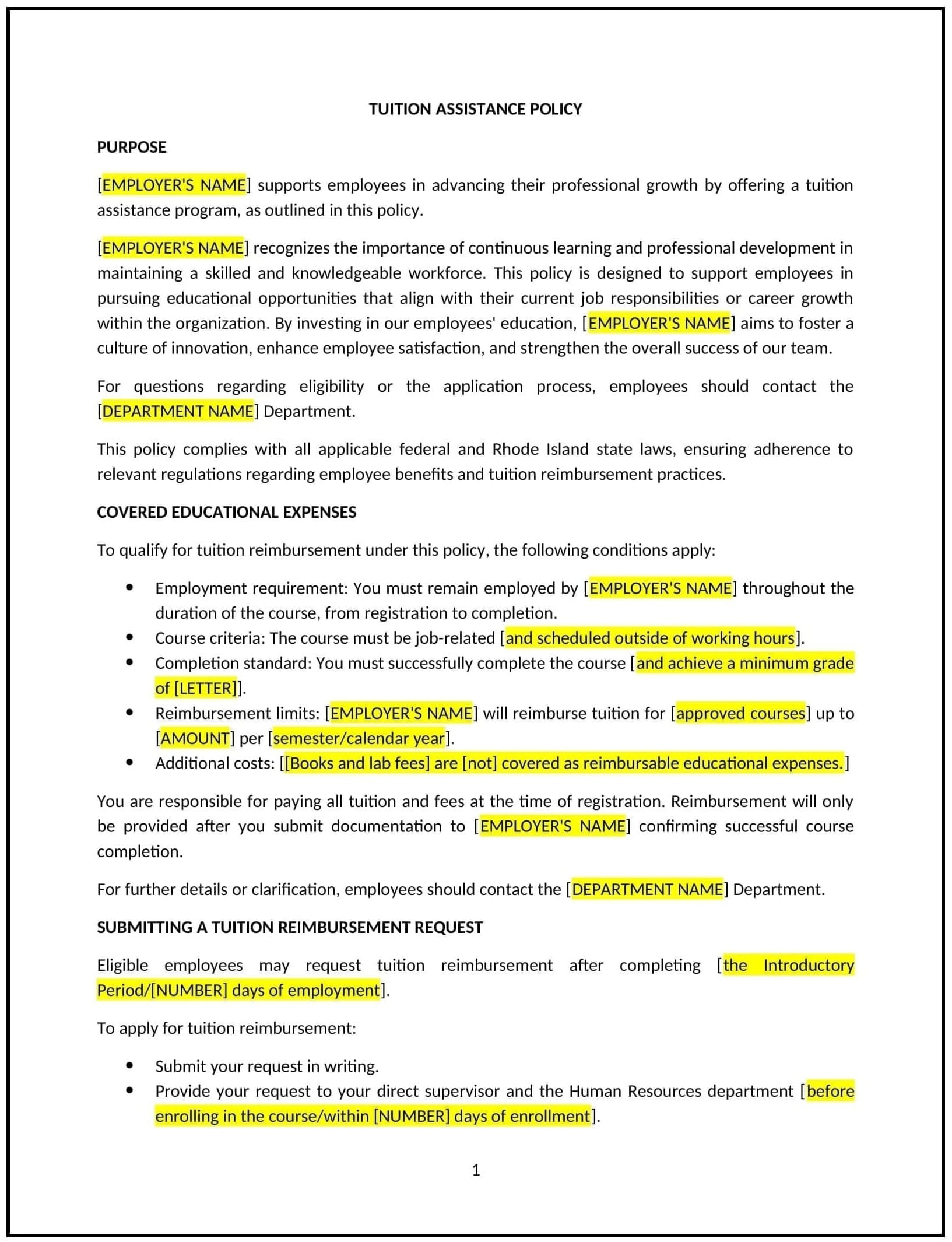Tuition assistance policy (Rhode Island): Free template
Got contracts to review? While you're here for policies, let Cobrief make contract review effortless—start your free review now.

Customize this template for free
Tuition assistance policy (Rhode Island)
This tuition assistance policy is designed to help Rhode Island businesses establish guidelines for employees seeking financial support for education or professional development. It outlines eligibility criteria, reimbursement procedures, and program requirements.
By adopting this policy, businesses can support employee growth, enhance skills, and improve overall performance.
How to use this tuition assistance policy (Rhode Island)
- Define eligibility: Clarify who qualifies for tuition assistance, such as full-time employees or those in specific roles.
- Set program requirements: Outline criteria for eligible programs, such as accredited institutions or job-related courses.
- Address reimbursement procedures: Specify how employees can request reimbursement, including required documentation.
- Establish repayment agreements: Detail whether employees must repay tuition assistance if they leave the business within a certain timeframe.
- Train managers: Educate supervisors on managing tuition assistance requests and supporting employees.
- Review and update: Assess the policy annually to ensure it aligns with evolving business needs and employee expectations.
Benefits of using this tuition assistance policy (Rhode Island)
This policy offers several advantages for Rhode Island businesses:
- Supports employee growth: Encourages employees to pursue education and advance their careers.
- Enhances skills: Improves employee performance and productivity through targeted education.
- Boosts morale: Demonstrates the business’s commitment to employee development and career advancement.
- Attracts talent: Makes the business more appealing to candidates seeking opportunities for professional growth.
- Reduces turnover: Employees are more likely to stay with a business that invests in their development.
Tips for using this tuition assistance policy (Rhode Island)
- Communicate the policy: Share the policy with employees and include it in the employee handbook.
- Provide training: Educate managers on managing tuition assistance requests and supporting employees.
- Monitor compliance: Regularly review tuition assistance requests to ensure adherence to the policy.
- Address issues promptly: Take corrective action if tuition assistance requests are mishandled or denied improperly.
- Update regularly: Assess the policy annually to ensure it aligns with evolving business needs and employee expectations.